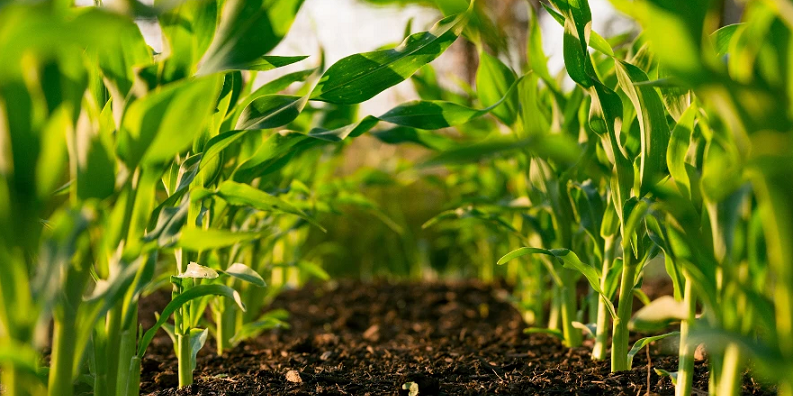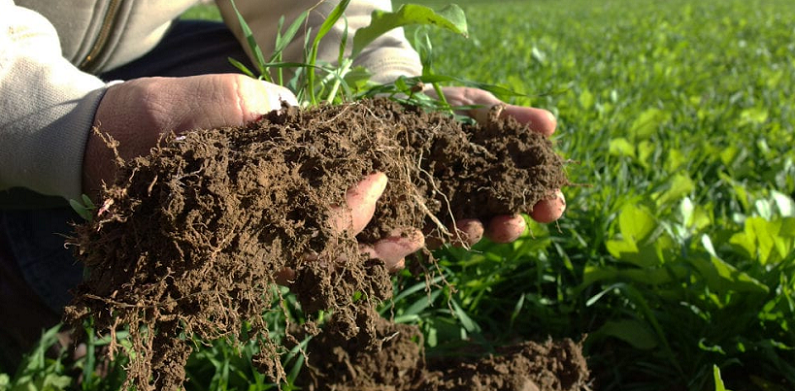
In recent years, the scientific community has turned its gaze toward the ground beneath our feet, uncovering the profound and often overlooked connection between the health of our planet’s soil and the functioning of our own minds. Soil, the thin layer of the Earth’s crust that plays a vital role in sustaining life, is more than just a medium for plant growth — it’s a complex ecosystem that influences the very air we breathe and the food we consume. Yet, as we navigate the challenges of environmental degradation and climate change, the health of this crucial resource is under threat, posing potential risks not only to our physical well-being but also to our cognitive health.
Contents
- The Foundation of Soil Health
- Cognitive Function and Its Importance
- The Soil-Cognition Nexus
- Soil-Cognition Case Studies and Research Findings
- References
The Foundation of Soil Health
Soil health hinges on a delicate balance of physical, chemical, and biological properties. A healthy soil not only supports plant growth, making it fundamental to agriculture and food production, but it also plays a pivotal role in regulating the Earth’s atmosphere and water cycle, mitigating the impacts of climate change, and supporting a diverse range of life forms.
Components of Healthy Soil
The complexity of soil health can be broken down into three primary components: physical structure, chemical balance, and biological ecosystem. Each of these components plays a vital role in maintaining the functionality and productivity of soil.
Physical Structure
The physical structure of soil refers to the arrangement of solid particles and the pore spaces found between them. This structure is crucial for water retention, drainage, and aeration, all of which are essential for robust plant growth. Soil with good physical structure allows for the adequate movement of air and water, both of which are necessary for root growth and the mobilization of nutrients.
Chemical Balance
Soil’s chemical balance includes the concentration of nutrients and the pH level, which influence the soil’s fertility. Essential nutrients such as nitrogen, phosphorus, and potassium, along with trace minerals like iron, manganese, and zinc, must be present in the right amounts for plants to thrive. The pH level of the soil affects the availability of these nutrients to plants and the activity of soil-dwelling microorganisms.
Biological Ecosystem
The biological ecosystem within the soil encompasses a rich diversity of organisms, from bacteria and fungi to earthworms and insects. These organisms play critical roles in decomposing organic matter, recycling nutrients, and forming symbiotic relationships with plant roots. The health and diversity of this biological community are indicative of a soil’s overall health and its ability to support plant life [1].
Indicators of Soil Degradation
Despite the resilience of soil, it is vulnerable to degradation, which can significantly impair its health and productivity. Soil degradation is a global concern, with direct impacts on food security, climate change, and biodiversity.
Erosion
Erosion, the removal of the top layer of soil by water or wind, is a leading cause of soil degradation. This process strips away the nutrient-rich portion of the soil, reducing its fertility and water-holding capacity.
Nutrient Depletion
Continuous cropping and inadequate replenishment of soil nutrients lead to nutrient depletion. Over time, this can result in diminished soil fertility, affecting plant growth and the nutritional quality of crops.
Biodiversity Loss
The loss of biodiversity within soil ecosystems, often due to chemical pollution, overuse of fertilizers, and monoculture practices, undermines the soil’s natural ability to recycle nutrients, resist pests, and maintain its structure and fertility.
Global Importance of Soil Conservation
The preservation of soil health is a matter of global importance, critical for ensuring food security, protecting biodiversity, and combating climate change. Soil conservation involves implementing sustainable agricultural practices, restoring degraded lands, and promoting a balanced interaction with our natural environment. By safeguarding the health of our soil, we protect the foundation of life on Earth and ensure a healthy legacy for future generations.

Cognitive Function and Its Importance
Cognitive health is a vital component of overall well-being, playing a critical role in how we process information, make decisions, and interact with our environment.
Definition and Components of Cognitive Function
Cognitive function is a broad term that encompasses all aspects of thinking, from the reception of stimuli to the execution of complex problem-solving tasks.
Memory
Memory is the ability to store, retain, and subsequently retrieve information. It is a fundamental component of cognitive function, enabling us to learn from past experiences and apply knowledge to our current context [2].
Attention
Attention is the cognitive process of selectively concentrating on one aspect of the environment while ignoring other things. It is crucial for processing information effectively and plays a key role in learning and memory.
Executive Functions
Executive functions are a set of cognitive processes that include planning, flexibility, impulse control, and problem-solving. These functions enable us to organize our thoughts and actions, make decisions, and adjust to changing circumstances.
Factors Influencing Cognitive Health
Several factors can influence cognitive health, ranging from genetic predispositions to lifestyle choices and environmental exposures. Understanding these factors is essential for promoting and maintaining cognitive function throughout life.
Genetics
Genetics play a significant role in determining an individual’s predisposition to certain cognitive abilities and risks of cognitive decline. However, genetic factors interact with environmental and lifestyle factors, meaning that genetic predispositions are not deterministic.
Lifestyle
Lifestyle factors such as diet, physical activity, sleep, and social engagement have been shown to have a profound impact on cognitive health. Nutrient-rich diets, regular physical exercise, adequate sleep, and active social lives contribute positively to maintaining cognitive function.
Environmental Exposures
Exposure to environmental pollutants, such as heavy metals and pesticides, can adversely affect cognitive health. Additionally, access to green spaces and interaction with natural environments can enhance cognitive function and mental well-being.

The Soil-Cognition Nexus
As we explore the nexus between soil health and human cognitive function, it becomes evident that this relationship is sustained through various pathways, each highlighting a different aspect of how our environment influences our mental processes.
Nutritional Pathway
The link between soil health and cognitive function is perhaps most directly observed through the nutritional pathway. The nutrients that plants absorb from the soil are the same nutrients that, once consumed, support human cognitive processes.
Soil Health’s Impact on Crop Nutrient Levels
The nutrient content of crops is directly influenced by the health of the soil in which they are grown. Soils rich in essential nutrients such as nitrogen, phosphorus, and potassium, along with a balanced array of trace minerals, produce crops with higher nutritional value. These nutrients are vital for brain health, supporting functions such as neurotransmitter synthesis and energy production [3].
Nutrient Intake and Cognitive Development
The human brain requires a wide range of nutrients for its development and function. Essential fatty acids, vitamins, and minerals obtained from the diet play crucial roles in cognitive development from prenatal stages through to old age. Deficiencies in nutrients such as omega-3 fatty acids, iron, iodine, and vitamin B12 have been linked to cognitive impairments and developmental delays.
Environmental Pathway
Beyond nutrition, the health of the soil influences cognitive function through broader environmental pathways, including exposure to pollutants and the diversity of the microbial environment.
Exposure to Soil-Based Pollutants
Soil contamination with heavy metals such as lead, mercury, and arsenic poses significant risks to human health, including cognitive function. Children are particularly vulnerable to the neurotoxic effects of these pollutants, which can lead to learning disabilities and decreased IQ.
The Role of Microbial Diversity in Soil and Human Health
Emerging research suggests a fascinating link between the microbial diversity of the soil and human health, including cognitive health. Exposure to a diverse range of microbes in early life has been associated with benefits to the immune system and may also influence the development and function of the brain through the gut-brain axis.
Psychological Pathway
The connection between soil health and cognitive function also extends to psychological pathways, including the impact of green spaces on mental well-being and cognitive performance.
Green Spaces, Soil Interaction, and Mental Health Benefits
Interacting with green spaces and, by extension, the soil, has been shown to reduce stress, improve mood, and enhance cognitive performance. Activities such as gardening can provide direct contact with soil, offering therapeutic benefits and promoting mental well-being [4].
Stress Reduction and Enhanced Cognitive Function
The reduction of stress and improvement of mental health through interaction with natural environments, including healthy soils, can indirectly benefit cognitive function. Lower stress levels are associated with improved attention, memory, and executive function.
Soil-Cognition Case Studies and Research Findings
The body of research exploring the soil-cognition nexus is vast and varied, encompassing studies from around the globe that highlight the multifaceted relationship between environmental health and human cognitive outcomes.
Epidemiological Studies on Rural and Urban Populations
Epidemiological studies have played a crucial role in highlighting the disparities in cognitive health outcomes between rural and urban populations, often linked to differences in soil quality and access to green spaces.
Impact of Rural Soil Quality on Cognitive Health
Studies conducted in rural areas, where residents are more directly dependent on the land for their livelihood, have shown that regions with healthier soils tend to have populations with better cognitive performance. This correlation is attributed to the higher nutritional value of the crops grown in such soils and the reduced exposure to soil contaminants.
Urban Green Spaces and Cognitive Development in Children
Research focusing on urban populations has found that access to green spaces, which implies indirect benefits from healthy soils, is associated with improved cognitive development in children. These benefits are linked to both the reduction in air pollution and the psychological benefits of interacting with natural environments.
Experimental Studies on Soil Health Interventions
Experimental research provides valuable insights into the causative effects of soil health interventions on cognitive outcomes.
Soil Remediation and Cognitive Function
Studies involving the remediation of contaminated soils, such as the removal of lead or the enhancement of nutrient content, have demonstrated measurable improvements in the cognitive function of nearby populations, particularly among children. These findings underscore the direct impact of soil health on human health and cognitive abilities [5].
Agricultural Practices and Nutritional Outcomes
Experimental interventions that promote sustainable agricultural practices, such as crop rotation, organic farming, and the use of natural fertilizers, have been shown to improve the nutrient content of the soil and, consequently, the nutritional quality of the crops. This, in turn, has positive implications for cognitive health, highlighting the importance of sustainable farming for environmental and human health.
Review of Longitudinal Studies on Diet and Cognitive Function
Longitudinal studies offer a long-term perspective on the relationship between diet, soil health, and cognitive function, tracking changes over time and providing insights into the cumulative effects of dietary intake on cognitive health.
Long-term Nutritional Intake and Cognitive Decline
Research tracking individuals’ dietary habits over several decades has found that diets rich in nutrients from crops grown in healthy soils are associated with a lower risk of cognitive decline and neurodegenerative diseases in later life. These findings emphasize the importance of soil health for ensuring the nutritional quality of the diet and its long-term benefits for cognitive function.
Impact of Early-Life Exposure to Soil-Based Nutrients on Cognitive Outcomes
Studies focusing on early-life exposure to nutrients, either through maternal diet during pregnancy or through childhood dietary intake, have shown significant impacts on cognitive development and academic performance. This research highlights the critical role of soil health in supporting cognitive development from the earliest stages of life.
References
[1] The Connection Between Soil Health and Mental Well-being
[2] Advancing the intersection of soil and well-being systems science
[3] Eat That Bacteria – Soil and Health Connection
[4] Did You Know That Soil Health Affects Human Health?
[5] Connecting the public with soil to improve human health

